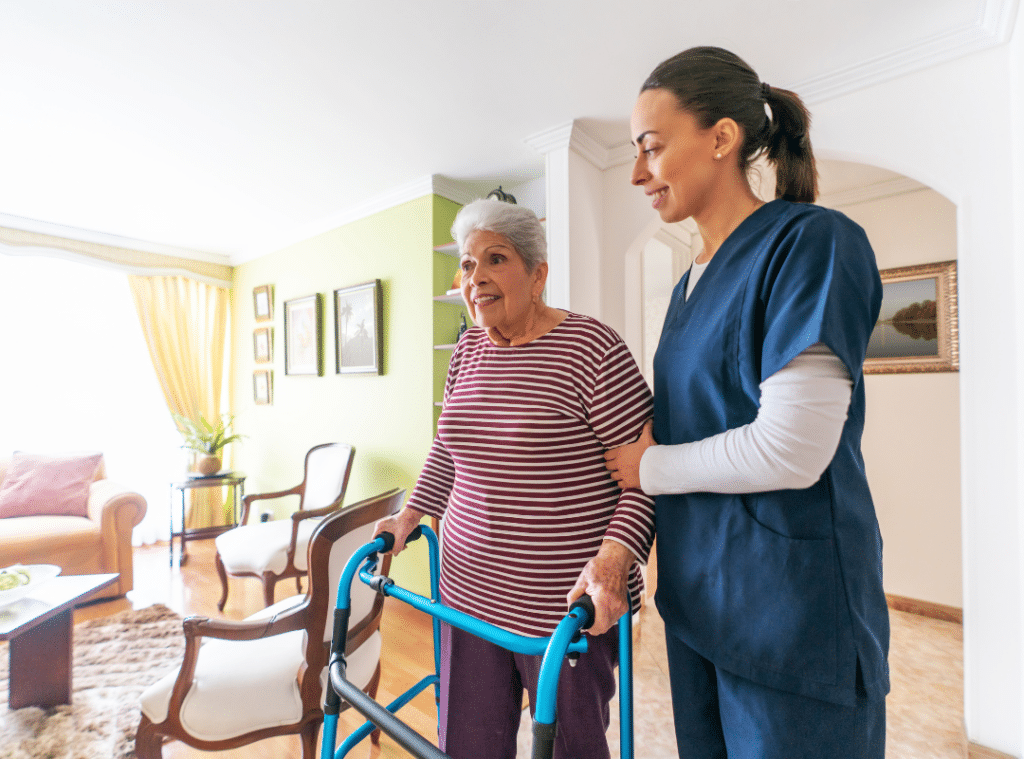Like a bridge connecting independence and care, assisted living for seniors at Westmont of La Mesa provides a vital support system for those traversing the later stages of life. You might wonder what services are offered and how they can enhance comfort and freedom. Understanding the nuances of this living arrangement can help you make informed decisions for yourself or a loved one. Considering the various options at Westmont of La Mesa, it’s important to explore the amenities and the essential factors that influence this choice.
What is assisted living for seniors
Assisted living for seniors is a supportive option designed to help individuals maintain their independence while receiving the care they need. It’s tailored for those who may require some assistance with daily activities but don’t need the intensive care offered by nursing homes.
Here, you’ll find a community that fosters a sense of belonging and offers services like meal preparation, personal care assistance, and engaging social activities.
Most residents are typically between 75 and 84 and often seek a safe environment that promotes dignity and autonomy.
In assisted living, residents enjoy private or semi-private accommodations with shared common areas, encouraging interaction and friendship. The goal is to enhance the quality of life through meaningful engagement and personalized care plans.

Physical requirements for assisted living
When considering assisted living, it’s crucial to understand the physical requirements that help determine if this option suits an individual. Assisted living typically assists seniors who can still perform some daily activities but may need help with others, such as bathing or taking medications.
Here’s a simple table to help clarify the physical capabilities often required for assisted living:
| Requirement | Description | Importance |
| Mobility | Ability to move independently or with a walker | Safety and independence |
| Daily Activities | Ability to manage basic personal care tasks | Promotes self-sufficiency |
| Cognitive Function | Ability to understand and follow instructions | Guarantees safety and compliance |
Assisted living may be a viable option if you or a loved one can maintain some independence while requiring minimal assistance. Remember that each facility may have different requirements, so evaluating individual needs and preferences is vital. Ultimately, the goal is to enhance quality of life while providing a supportive environment tailored to personal capabilities.

When to move from assisted living to a nursing home
Often, families face the challenging decision of moving a loved one from assisted living to a nursing home as care needs change. It’s important to recognize when this change becomes necessary. Suppose your loved one is experiencing significant health declines, such as chronic illness or mobility issues that exceed the assistance provided in assisted living. In that case, a nursing home may be the right choice.
Look for signs that daily activities, like bathing, eating, or taking medications, are becoming overwhelming. If you notice frequent hospitalizations or emergency room visits, this could indicate a need for more specialized medical care.
Additionally, if your loved one’s cognitive abilities are deteriorating, leading to confusion or wandering, a nursing home can offer the supervision and safety they require.
Ultimately, the decision should prioritize your loved one’s well-being. Open conversations with care providers, family members, and your loved one will help clarify the best path forward.
As you weigh your options, consider the balance between independence and the support you or your loved one might need at Westmont of La Mesa. Picture a vibrant community where friendships blossom and assistance is always within reach, yet envision when those needs might change. It’s a journey, and understanding when to shift to a nursing home is essential. Trust your instincts and stay attuned to the signs because every step forward can lead to a more fulfilling life. For more information, feel free to call us at 619-369-9700.
Discover the level of care you or your family member requires. What Level of Care Do You Need?
FAQs About Assisted Living
What services do most assisted living facilities provide?
Most assisted living facilities offer help with daily activities such as bathing, dressing, medication management, and meal preparation. They also provide social activities, housekeeping, transportation, and 24-hour staff support to promote independence and safety.
What is the disadvantage of an assisted living facility?
A potential disadvantage of assisted living is the cost, which can be high and is often not covered by insurance. Additionally, some residents may find the level of care inadequate for advanced medical needs, requiring a transition to a more specialized facility.
How is most assisted living care usually paid for?
Assisted living care is typically paid for out-of-pocket by residents or their families. Long-term care insurance, veterans’ benefits, and Medicaid waivers can help cover costs, but Medicare generally does not pay for assisted living.
Does the state of California pay for assisted living?
California offers limited financial assistance for assisted living through Medi-Cal’s Assisted Living Waiver (ALW) program. This program helps eligible low-income seniors by covering some costs, but availability is limited to specific facilities and regions.
Who qualifies for assisted living?
Seniors who need help with daily activities but do not require constant medical care typically qualify for assisted living. Facilities may assess physical and cognitive health to determine eligibility, ensuring residents can benefit from a supportive but semi-independent environment.
What is assisted living vs. nursing home?
Assisted living focuses on supporting daily living while promoting independence, offering social engagement and minimal medical supervision. Nursing homes provide more intensive medical care and round-the-clock supervision for individuals with serious health conditions or those recovering from hospital stays.








